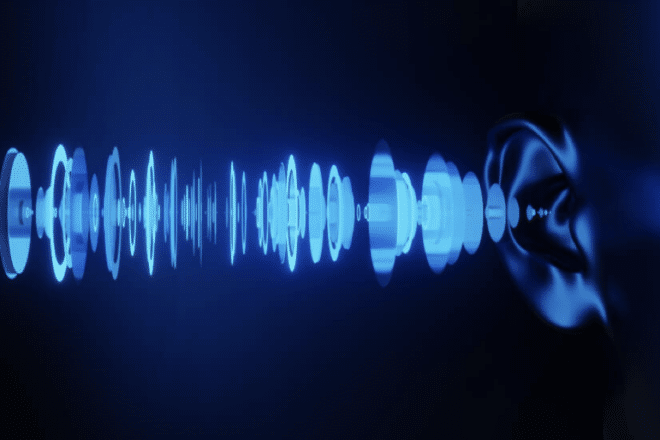Acceptable Hearing Aid Sound Delays
Is There Some Sort of Delay When Wearing Hearing Aids?
When sound travels through digital hearing aids, there’s a natural delay between when it occurs and when a person’s device processes it. People with less severe hearing loss may experience longer delays than those with mild hearing loss. Some patients are concerned with the sound delay they might experience while wearing hearing aids. Below, the experts at True North Hearing explain what a hearing aid sound delay is and why it’s important to be aware of the occurrence. Contact our hearing care professionals today to learn more or schedule a hearing evaluation at one of our hearing care centers located in Acton, MA and the surrounding areas.
How Do Hearing Aids Process Sound?
First, it helps to understand how hearing aids work. Hearing aids work by amplifying sound through a three-part system:
- The microphone in the device receives sound waves and converts them into digital signals.
- The device’s amplifier increases the strength of the digital signal.
- The speaker sends amplified sounds into the ear
About Hearing Aids & Sound Delays
Over the past couple of decades, digital hearing aids have caused considerably longer sound delays than their analog counterparts. For those who wear hearing aids, sounds are transmitted into the ear canal through two different paths:
- On the first path, sound waves travel around the device or past the earmold tubing and directly into the ear canal. If your hearing aid fitting is more open than closed, there is greater attenuation of the direct sound, reducing the possibility of a noticeable sound delay.
- On the second path, the signal passes through the device, is processed, and then delivered into the ear canal. These two paths have fundamentally different time delays before the hearing aid user perceives sound.
What’s an Acceptable Hearing Aid Delay Time?
The sound delay caused by the amplification of a digital device is measured in milliseconds, so it’s relatively short. However, the sound quality of the speech may still be compromised. When a delay is about ten milliseconds, the direct sound and amplified sound interact with one another and alter the tone of the sound. The patient may notice an echo when the delay lasts longer than ten milliseconds. When the sound delay is longer than 40 milliseconds, the auditory information may fall out of sync with the visual information and interfere with comprehension.
Digital Hearing Aid Processing Delays
All hearing aids have processing delays, which can interfere with amplified sound quality. When you have digital hearing aids, each device feature will add to the total delay time. For example, a device with advanced noise reduction, multiple channels, and a sophisticated feedback reduction system will probably have a longer delay than hearing aids without those features.
Contact Us for Hearing Aid Treatment Today
If you’re experiencing a sound delay with your digital hearing aids, the hearing care professionals at True North Hearing can help. Adding several features can cause longer delays, so it’s worth discussing with your audiologist whether reprogramming or adjusting your devices will improve the delay or echo you hear. While a sound delay when wearing hearing aids is expected, we’re committed to ensuring you’re comfortable wearing your devices and want you to feel like they’re making a positive difference in your life.
True North Hearing is proud to offer a wide range of audiology services at our hearing care centers located throughout Acton, MA and the surrounding areas. When you team up with our hearing care professionals, your hearing health is in good hands. Contact us today to learn more or schedule an appointment for a comprehensive hearing evaluation.



